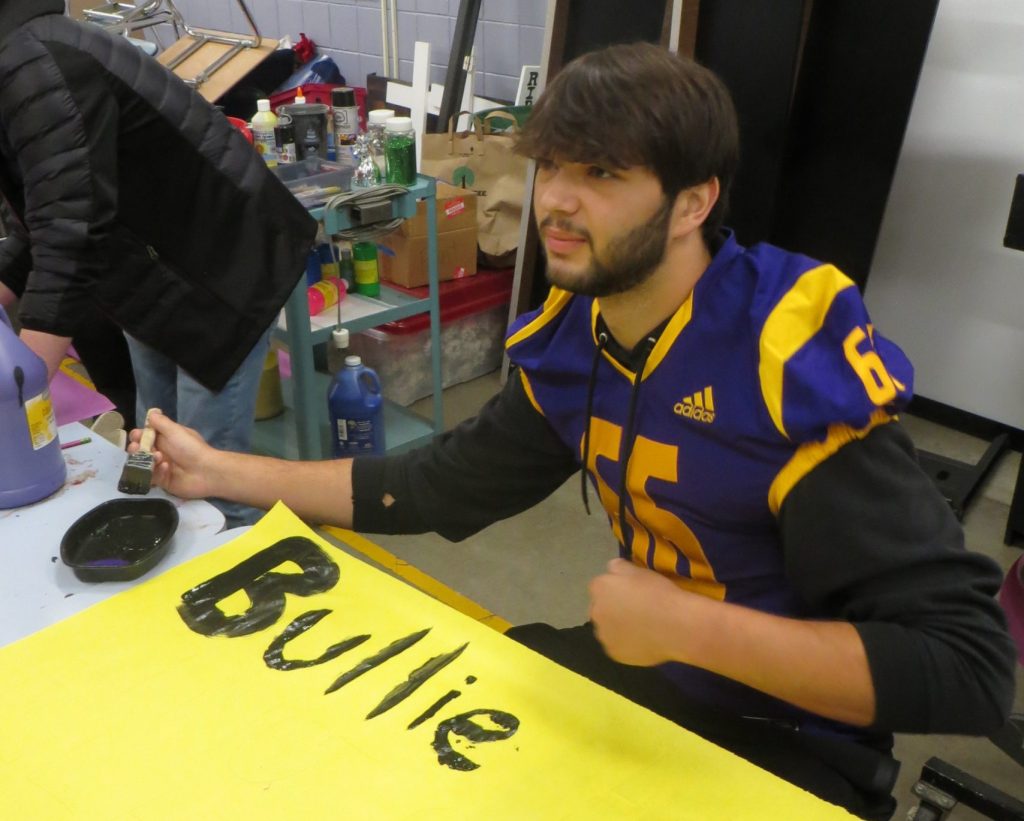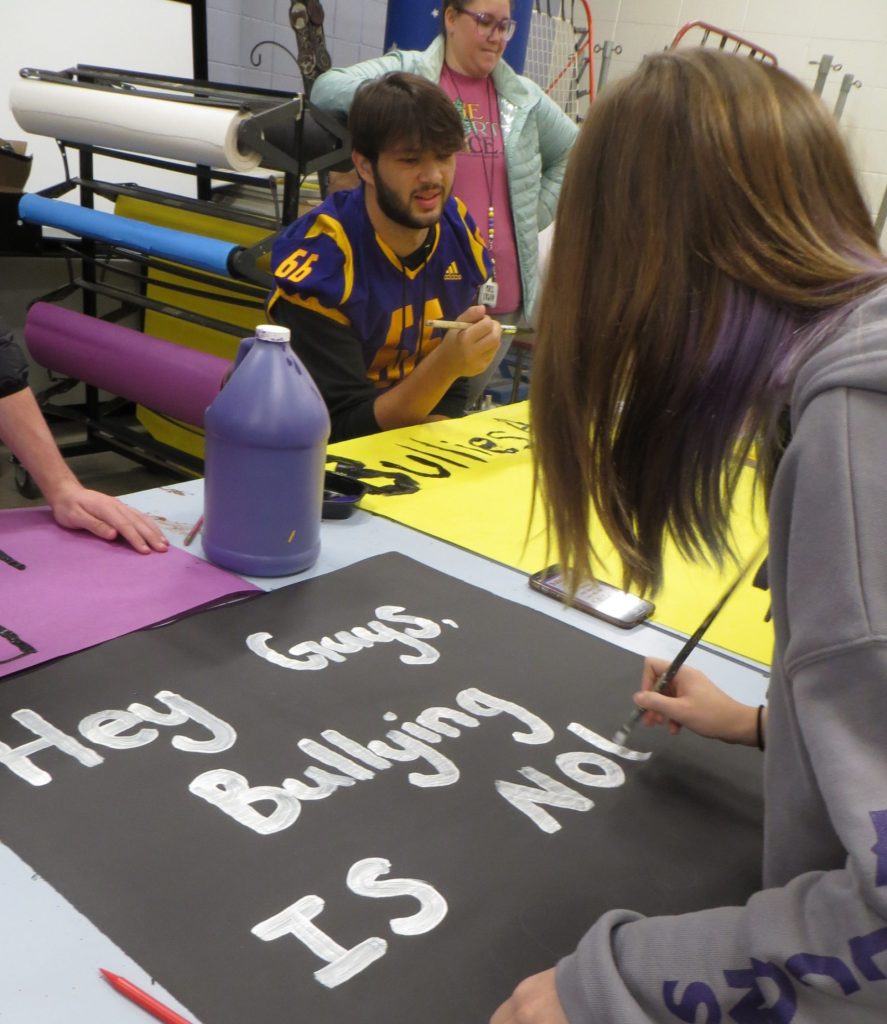
October is National Bullying Prevention Month, and the second Wednesday in October is National Stop Bullying Day. Unity Day is Oct. 19, a time to wear orange in support of those who have been bullied. In addition, the homeroom topic for Oct. 19 will be bullying awareness.
In addition, the Leadership class painted posters to hang up around the school encouraging students to prevent bullying.
There are various types of bullying, including verbal bullying, physical bullying, relational bullying and cyberbullying.
Verbal bullying: Involves spoken words and disrespectful language aimed at the target.
Physical bullying: Aggression in the form of hitting, kicking, pushing, or any other unwanted touch.
Relational bullying: Purposely excluding someone from activities, events or groups through social tactics.

Cyberbullying: Using social media, the Internet and texts to spread rumors, lies or mean messages about a person.
Bullying in Our School
Falcon News sat down with counselor Court Wirth to discuss bullying at EHS and how our school compares with others around the country.
Q: Is bullying an issue at this school?
A: “Yes, I would say that it is. It is not an especially bad problem, but we do know of instances.”
Q: What is the tolerance of bullying? What are the consequences?
A: “Bullying is not tolerated and it is challenging to stay on top of it, especially with cyberbullying. They are trying to find a balance between administration and the counselors.”
Q: Are you doing any campaigns for Bullying Prevention Month?
A: “Our leadership team is also running a small campaign. They are making posters to commemorate this month. You will be able to find them throughout the school.”
Q: Do you have any bullying prevention tips?
A: “I would say the biggest thing is don’t keep it to yourself.”
Q: What are different perspectives of bullying?
A: “I don’t think of it as black and white. You also have to consider the intricate relationship the bullied and bullier have or may have had in the past.”
Comparisons of the Nation to Our School
Wirth also compared national statistics to what he has experienced at EHS.
Statistic: Of those reported being bullied, 13% are made fun of, called names or insulted; 13% are subject of rumors; 5% were pushed, shoved, tripped, or spit on; and 5% were excluded on purpose.
Answer: “What I hear about is definitely online comments. It is not so much of the direct bullying that occurs here.”
S: Higher portions of female students reported being bullied than males.
A: “I don’t feel that way. It’s about honing in on people who aren’t making good choices or doing bad things and determining their motivation.”
S: School-based bullying prevention programs decrease bullying by 25%.
A: “Other schools that do this, there is a definite agreement that brings light to bullying and makes people not feel so alone.”
S: Bullying occurred 43% in the hallway, 42% in the classroom, 27% in the cafeteria, 22% outside on school property, 15% online or by text, 12% in the bathroom or locker room, and 8% on the school bus.
A: “Here, I think, for the conversations I’ve had it’s a mix between the hallways and the classrooms.”
S: The most common reasons for being bullied include physical appearance, race/ethnicity, gender, religion, disability, and sexual orientation.
A: “Definitely last year we would have issues of bullying around race/ethnicity and identity.”
Statistics from the Oregon’s Healthy Teens Survey 2019
S: During the past 30 days, have you been bullied by someone using any kind of technology, such as social media, cell phones, or video games?
A: Out of 11,886 11th-graders 1,286 said yes while 10,600 said no. Of those who said yes, 723 were female, 470 were male and 93 were nonbinary/GNC.
S: During the past 30 days, have you been bullied at school (including any school events, or on the way to or from school) in relation to any of the following issues? This includes in person and cyberbullying.
A: Out of 11,684, 2,298 said they were bullied for any reason, 436 said they were bullied by their race or ethnic culture, 705 said they had unwanted sexual comments or attention, 362 said they were bullied because someone thought they were gay or lesbian or bisexual, 874 were bullied about their weight clothes acne and other physical characteristics, 485 said they were bullied because of their friend group, and 1,066 said they were bullied for other reasons. In addition, 9,386 said they were not bullied at school.




